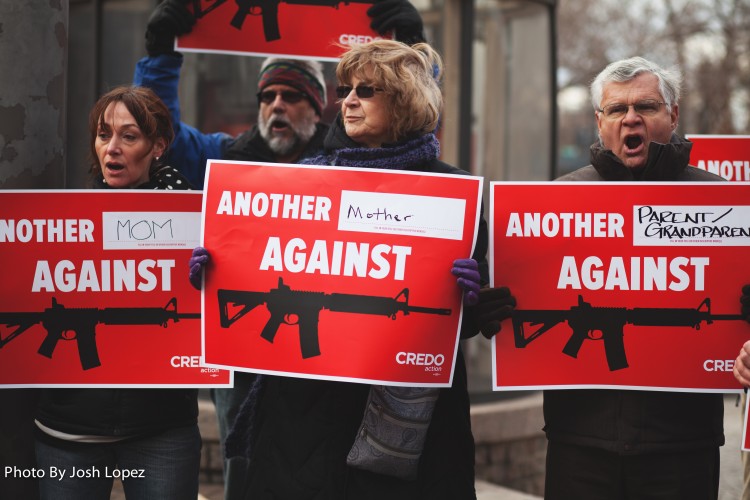The United States just suffered the worst mass shooting in our nation’s modern history, with 59 people dead and more than 500 injured. This is unfortunately not a new phenomenon. Mass shootings have become a regular part of U.S. culture, and we see rampant gun violence year after year. The event that changed the narrative for me and countless others was the murder of 20 children and six adults at Sandy Hook Elementary School in 2012. And still, so little has changed after nearly five years.
We can lament the deaths and pray for the families of the victims, and we can shout for sensible gun policy reform, but we cannot expect change without concentrated action. This may seem ludicrous. After all, why would anyone think assault rifles are needed for home protection? Further, it’s doubtful anyone would argue we should have background-check loopholes allowing the mentally ill and people with criminal records to obtain firearms. Yet here we are.
The only solution is to create a new lobby that stands in opposition to those pushing looser gun legislation. We need to target political influence if we want to move forward.
Politics is all about how politicians can retain their power. This is not an inherently evil principle. If a politician believes they can effect real change and help their fellow Americans through a position of power, then it is not evil for them to want to retain that power. However, this comes at a cost. Winning elections requires a lot of money. It also requires appealing to the individuals who vote most fervently and frequently. On gun control, this is a one-sided power structure. The major pro-gun lobby in the United States is the National Rifle Association, but there is no comparable gun control lobby that could similarly influence elections.
The NRA’s power is staggering. Since 1998, it has donated more than $3.5 million to current sitting members of Congress. Forty-nine current senators and 258 current representatives have accepted NRA donations, amounting to more than 57 percent of all members of Congress. In addition to providing funds to members of Congress, the NRA states its membership is around 5 million Americans. These Americans are much more politically vocal and likely to vote. How they vote is often influenced by the NRA, which rates all members of Congress on their friendliness to the gun lobby.
This is the American political system in a nutshell. One organization controls substantial campaign funds and influences the votes of a large block of frequent voters, holding power over the 55 percent of Americans who support stricter gun-control laws. You can call your congressional representatives and demand action, but action will not come. The congressmen who do not support gun control are more afraid of the NRA and its members than they are of the rest of us. They are more worried about their electability than they are the 11,000 Americans killed with guns each year.
The only way to fight such a powerful lobby controlling money and votes is to create an equally strong counter-lobby. Like the NRA, this lobby would have to have a large membership of individuals who frequent the polls and are willing to donate to the organization.
It may feel like this is stooping to the level of the NRA, but in this instance, we need to prioritize saving innocent lives over hesitation that lobbying may not be the most wholesome way to influence politics. With a powerful gun-control lobby, Congress may begin to take the issue more seriously as a national priority.



